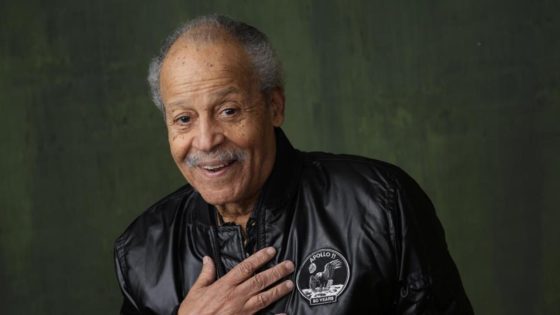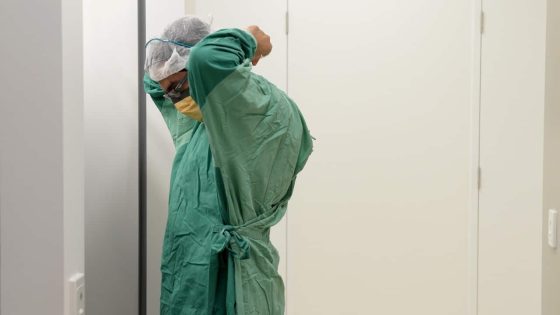Jeff Bezos’ space company Blue Origin has launched a six-person crew – including the first US black astronaut candidate from the 1960s – from West Texas to the edge of space, resuming its centrepiece space tourism business for the first time since its suborbital New Shepard rocket was grounded in 2022.
“I am ecstatic,” Ed Dwight, who at age 90 years and eight months became the oldest person in space, said upon landing.
Dwight and the other passengers, seated in a gumdrop-shaped capsule atop the rocket, were launched from Blue Origin facilities near the remote desert town of Van Horn. The rocket separated from the capsule, which then ascended further beyond the boundary of Earth’s atmosphere to 105.7km, while the booster returned to land as planned.
The capsule then returned to Earth under parachutes, capping a mission lasting roughly 10 minutes. One of the capsule’s three parachutes did not fully inflate, a hitch that may draw scrutiny before the rocket’s next flight.
Dwight was the first Black astronaut candidate who was picked by former US President John Kennedy in 1961 to train as an astronaut, but until now had never flown to space. Dwight stepped out of the capsule once it landed and thrust his fists into the air in celebration.
“I thought I really didn’t need this in my life, but now I need it in my life,” Dwight told a Blue Origin interviewer upon landing.
Blue Origin has now flown 37 private astronauts, including in 2021 “Star Trek” star William Shatner, who was 90 years and six months old at the time.
The passengers, also including a venture capitalist and a pilot, were paying customers of Blue Origin’s space tourism business, though Dwight’s seat was sponsored by a space-focused nonprofit and a private foundation. Blue Origin has not disclosed how much it charges customers.
The grounding of New Shepard, Blue Origin’s only active rocket, came after a mid-flight failure in September 2022 during an uncrewed research mission. A structural failure in the rocket’s engine nozzle, the company concluded, forced the capsule full of science experiments to abort.
The US Federal Aviation Administration, which oversees launchsite safety and commercial rocket mishaps, examined Blue Origin’s probe into the failure and required the company to take 21 corrective actions, including an engine redesign and “organisational changes.”
New Shepard returned to flight in December 2023 with an uncrewed mission, carrying 33 science and research payloads to the edge of space.
The FAA did not immediately respond to questions about the New Shepard capsule’s parachute and whether the agency would investigate. Without specifying whether the company would investigate the matter, a Blue Origin spokesperson said the crew capsule is “designed to safely land with one parachute” and called the mission an overall success.
Source Agencies



